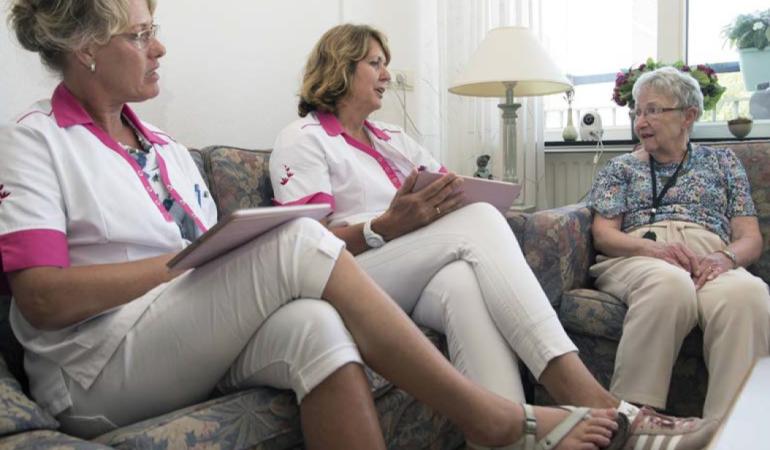
The demand for home-based nursing and personal care continues to grow. At the same time, the home-based nursing and personal care market is very fragmented. This means it is not always clear which provider offers what type of care and where there is space for a new patient. The seven national parties who signed the Framework agreement on home-based nursing decided there is a need for greater cooperation among home-based nursing and personal care providers. A study carried out by RIVM finds that district nurses themselves also feel the need for greater cooperation. However, this requires certain changes. For example, the exchange of patient information can be improved.
District nurses say that more than half of home-based nursing and personal care providers are already working together. For example, many providers cooperate to arrange unplanned overnight care and care for COVID patients. Furthermore, providers have taken steps to make home-based nursing and personal care more recognisable and responsible. One such step was creating a single point of contact for new requests for home-based nursing and personal care.
Knowing each other and sharing ideas
People involved in collaborative partnerships in home-based nursing and personal care (such as process managers) note that cooperation is easier when care professionals know each other. District nurses also need to be able to share their own ideas for initiatives. Making them the leader of a sub-project is one way to do this. That way, solutions can be found that are both realistic and widely supported. It is also important that providers enable cooperation at the administrative level. For example, by making sure district nurses have enough time to work with other professionals. It is also helpful if the relevant insurer supports cooperation.
Compatible with each other and the patient
There is still room for improvement in the cooperation between various care providers. For example, the exchange of patient information can be improved. Right now, organisations often work with their own system. These systems are not aligned with each other. District nurses additionally say it is important for organisations to have compatible working methods. Those methods should also be in line with the patient's wishes.
About the study
This RIVM study explored participants’ experiences in collaborative partnerships in six regions. The researchers conducted a survey amongst professionals who work as district nurses and transfer nurses. They also conducted in-depth interviews with professionals who take part in collaborative partnerships.
The Ministry of Health, Welfare and Sport commissioned this study.